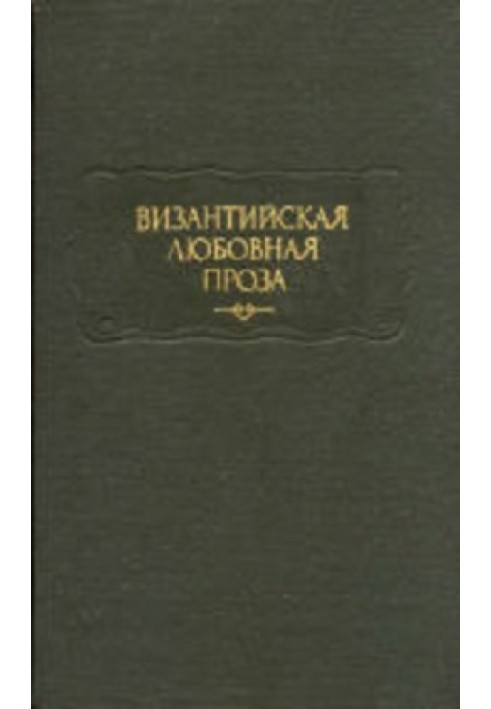Byzantine love prose: Aristenet. Love letters. Eumafiy Makremvolit. The Tale of Isminia and Ismina
 Instant download
Instant download
after payment (24/7)
 Wide range of formats
Wide range of formats
(for all gadgets)
 Full book
Full book
(including for Apple and Android)
The book introduces readers to two monuments of Byzantine prose: the “Love Letters” of Aristenetos (VI century) and the “Tale of Isminia and Ismina” by Evmatius Makremvolita (XII century), which had not previously been translated into Russian (translation by Eumatius, which appeared in XVIII century, was made not from the original, but from a French salon adaptation). Both of these works belong to a small category of monuments free from dryness, edification, and asceticism, which usually define the idea of Byzantine literature. On the contrary, the reader will encounter in them an amazing full-bloodedness, acceptance of life and freedom of perception of the world, not constrained by Christian religion and morality, a world where it is not Christ who rules, but Eros. “Letters” of Aristenet is a collection of fictitious letters that set out small love stories or related love theme episodes. “Letters” arose in early Byzantine times, are still very closely connected with ancient Greek literature and follow it, preserving in retellings and alterations the works that have come down to us, as well as the irretrievably lost works of the ancients. The novel by Eumatius, which tells about love, separation, adventures and the reunion of a loving couple, also relies on the ancient heritage, but, written much later, subjects its source to a radical revision in the spirit of the aesthetic principles of its time. Entertaining, life-affirming spirit, a significant role in the formation of the European novel and short story, combined with the stylistic merits of the monuments, hopefully, will attract attention not only to them, but also to Byzantine literature, which is undeservedly little popular among non-specialists. CONTENTS: Aristenet. “Love Letters” (5). Eumafiy Makremvolit. “The Tale of Isminia and Ismina” (89). APPENDICES From the history of Byzantine love prose (229). Notes to the “Love Letters” of Aristenetus (272). Notes to the “Tale of Isminia and Ismina” by Eumathias Macremvolita (294).
Data sheet
- Name of the Author
- Аристенет
Евматий Макремволит - Language
- Russian
- Translator
- Софья Викторовна Полякова














